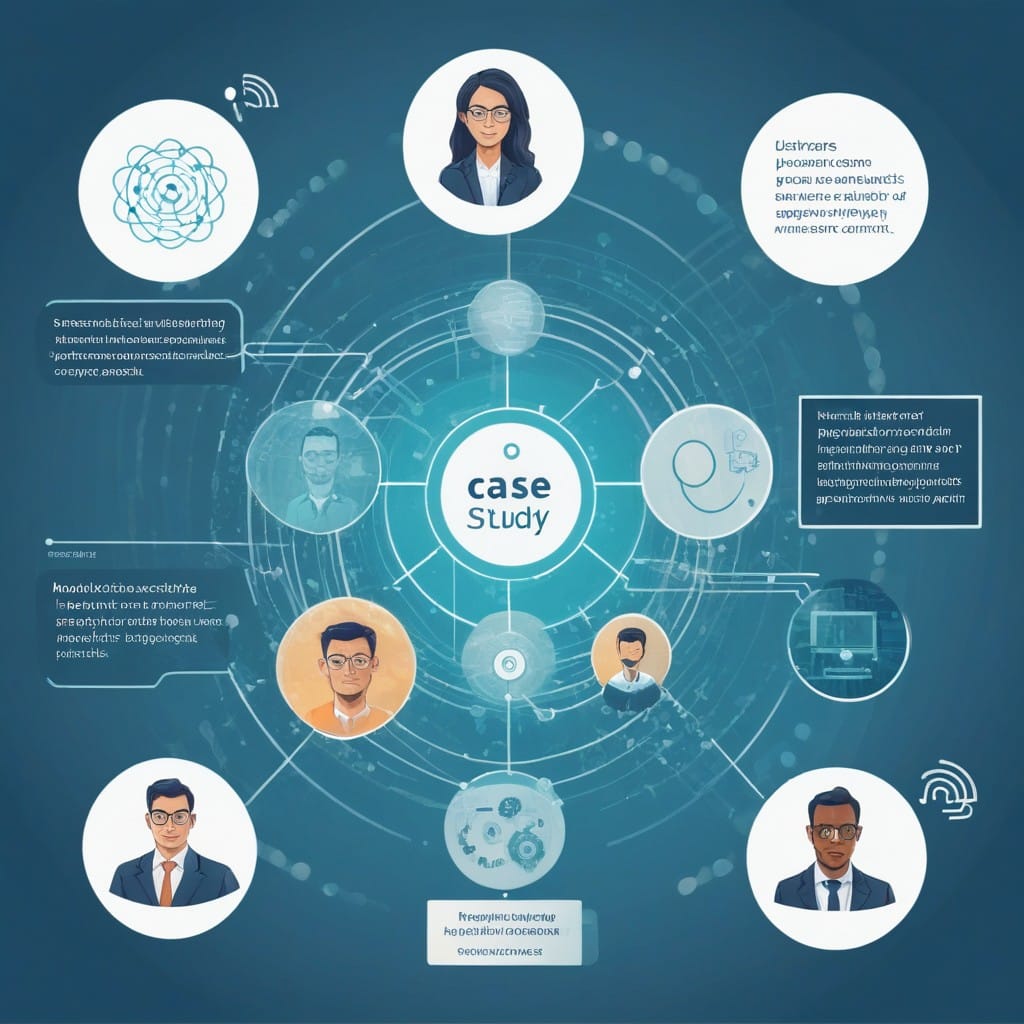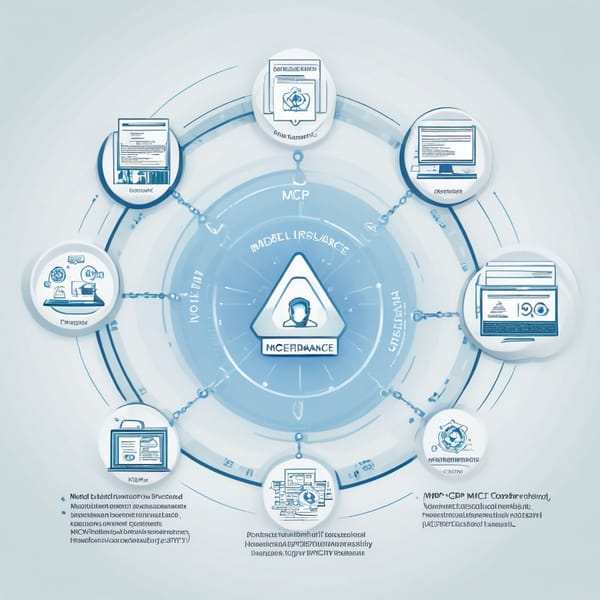Case Study: Model Context Protocol (MCP) Customer Onboarding – Streamlining KYC with Biometric Auth & Regulatory Compliance

Project Overview
The Model Context Protocol (MCP) Customer Onboarding project was designed to revolutionize Know Your Customer (KYC) verification by integrating biometric authentication tools with regulatory database servers to ensure compliance, security, and efficiency. Financial institutions and fintech companies face increasing regulatory scrutiny, making manual KYC processes slow, error-prone, and costly.
MCP’s solution automates identity verification using facial recognition, fingerprint scanning, and liveness detection, cross-referenced with global regulatory databases (e.g., AML, PEP, sanctions lists). The system ensures real-time compliance while reducing onboarding time from days to minutes.
Challenges
Before implementing MCP, organizations faced several critical challenges:
- Manual KYC Bottlenecks – Traditional verification relied on document checks and human review, leading to delays (up to 5-7 days per customer).
- Fraud & Identity Theft Risks – Fake IDs and deepfakes bypassed basic verification, increasing fraud exposure.
- Regulatory Non-Compliance Risks – Failure to screen against updated sanctions lists resulted in hefty fines.
- Poor User Experience – Lengthy onboarding caused customer drop-offs, impacting conversion rates.
- Scalability Issues – Legacy systems couldn’t handle high-volume onboarding during peak demand.
Solution
MCP introduced a protocol-compliant KYC verification framework combining:
1. Biometric Authentication
- Facial Recognition & Liveness Detection – AI-powered checks to prevent spoofing.
- Fingerprint & Iris Scanning – Multi-modal biometrics for higher security.
- Document Verification – OCR and AI cross-checked IDs against biometric data.
2. Regulatory Database Integration
- Real-time AML/CFT Screening – Automated checks against global watchlists (OFAC, UN, EU sanctions).
- Politically Exposed Persons (PEP) Detection – Flagging high-risk individuals.
- Ongoing Monitoring – Continuous updates to compliance status.
3. Decentralized Identity Verification
- Blockchain-based identity storage for tamper-proof records.
- Zero-knowledge proofs (ZKPs) to enhance privacy while verifying credentials.
4. Seamless API Integration
- Plug-and-play APIs for easy adoption by banks, fintech, and crypto platforms.
Tech Stack
The MCP onboarding system leveraged cutting-edge technologies:
| Category | Technologies Used |
|---|---|
| Biometric Auth | FaceNet, DeepFace, iProov, Neurotechnology |
| Regulatory DBs | Refinitiv World-Check, LexisNexis, Dow Jones |
| AI/ML Models | TensorFlow, OpenCV, AWS Rekognition |
| Blockchain | Hyperledger Fabric, Ethereum (for ZKPs) |
| Backend | Node.js, Python (Django), PostgreSQL |
| Security | AES-256 encryption, OAuth 2.0, FIDO2 |
| Cloud | AWS GovCloud (for compliance), Kubernetes |
Results
After deployment, MCP delivered measurable improvements:
1. Faster Onboarding
- Reduced verification time from 5 days to under 5 minutes.
- 90% decrease in manual review workload.
2. Enhanced Security & Compliance
- 99.8% fraud detection accuracy (vs. 85% in legacy systems).
- Zero compliance violations due to real-time regulatory updates.
3. Improved Customer Experience
- 40% increase in onboarding completion rates.
- 95% customer satisfaction (CSAT) score for seamless UX.
4. Cost Savings
- 60% reduction in KYC operational costs by eliminating manual checks.
- $2M+ saved annually in regulatory fines and fraud losses.
5. Scalability
- Handled 1M+ verifications/month with 99.99% uptime.
Key Takeaways
- Biometrics + Regulatory AI = Future of KYC – Combining facial recognition with real-time database checks ensures compliance without sacrificing speed.
- Automation Drives Efficiency – Reducing human intervention cuts costs and errors while improving scalability.
- Privacy-Preserving Tech is Critical – Blockchain and ZKPs enable secure identity verification without exposing sensitive data.
- Regulatory Tech (RegTech) is a Must – Continuous monitoring prevents compliance risks in dynamic regulatory environments.
- Seamless UX Boosts Conversions – Faster, frictionless onboarding directly impacts customer acquisition and retention.
Conclusion
The MCP Customer Onboarding project demonstrates how biometric authentication and AI-driven regulatory compliance can transform KYC processes. By eliminating fraud risks, reducing costs, and accelerating onboarding, MCP sets a new standard for secure, compliant, and user-friendly identity verification.
Industries Benefiting: Banking, Fintech, Cryptocurrency, Healthcare, E-commerce.
Future Roadmap: Expanding to decentralized identity (DID) networks and integrating with CBDC frameworks.
Would you like a deeper dive into any specific aspect of this case study?




